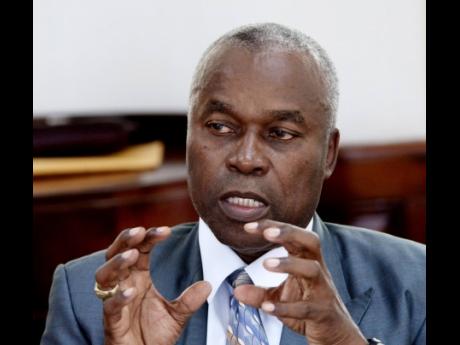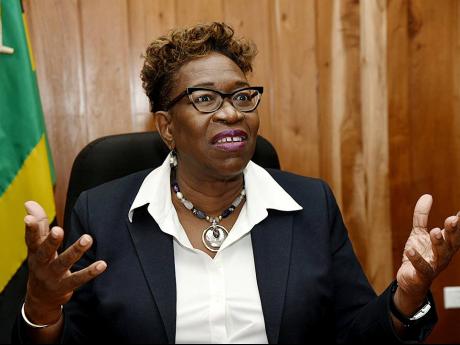DPP says Samuels ‘insincere’ about objections in Tesha trial
ATTORNEY BERT Samuels is “insincere” for claiming that he had objections about the prosecution’s closing address that he could not raise at the trial of alleged Clansman gang leader Tesha Miller, Paula Llewellyn, Jamaica’s chief prosecutor, has told a court.
According to Llewellyn, the director of public prosecutions (DPP), the senior lawyer’s posture in 2023, three years after the trial, is “a position of convenience for the Court of Appeal. It’s insincere”.
The DPP made her assertions yesterday as the Court of Appeal completed hearing oral arguments in the case Miller has brought against his 2019 conviction.
He was found guilty of ordering the 2008 murder of Jamaica Urban Transit Company chairman Douglas Chambers in Spanish Town, St Catherine.
Miller’s appellate legal team of John Clarke and Isat Buchanan argued that their client was convicted in an unfair trial presided over by a biased judge, Georgiana Fraser.
Closing addresses from the prosecution and defence are not usually recorded, the DPP said, adding that she believed there was nothing “impermissible” from the Crown because the transcript did not show any corrections from the judge.
Concerned with prosecution’s ‘tone’
But in an amended affidavit filed in March, Samuels, who was Miller’s lead trial lawyer, said he “was concerned with the tenor and tone of the prosecution’s address”.
Samuels was upset with the prosecutor’s reference to Luke 5 and verse 32 of the Bible to support the credibility of the witness and “to suggest to the jury that if he (witness) said Tesha Miller did it, he should be believed”. The passage speaks about Jesus’ mission to get sinners to repent.
In a separate affidavit Miller, whom the witness said was leader of the Clansman Gang, took issue with the prosecutor, telling the jury, “if fish come from sea bottom and seh shark down there you must believe them”. He also said the “jury was nodding their head in agreement”.
“It made no sense to object to the prosecutor’s address since all my objections were essentially overruled … It is also unusual, if not impermissible, to make objections to counsel’s address to the jury,” Samuels said.
According to him: “The normal practice will be for the judge in summation to correct any unfairness introduced by this means. In the thrust of the battle of the trial, it slipped me to point out this issue to the court but it is important that the appellate court address it.”
But the DPP said the complaints were “much ado about nothing” and that it was “quite clear” that the prosecutor was using a metaphor to highlight the witness’ contention that he was a senior member of the gang and was at a meeting where Miller instructed Andre ‘Blackman’ Bryan to kill Chambers.
Bryan was freed of murder.
“There was nothing unfair,” she said of the reference to ‘fish in the sea’.
‘Aggressive stances’
Llewellyn also argued that throughout the trial Samuels “was not shy in any way to express himself to the court and there is evidence in the transcript of robust exchanges and very aggressive stances taken by Bert Samuels to the Bench”.
To bolster her assertion, the DPP pointed to an exchange between Samuels and the trial judge who chastised the lawyer for giving the impression that he was being “bridled” by the court.
“No court can bridle this office,” Samuels replied, adding that: “I would have to be a donkey to be bridled.”
After reading the quote, the DPP said if she were to be “mischievous, I would have thought that my learned friend would have said ‘I’d have to be a stallion, not a donkey’, knowing Samuels”.
Llewellyn also indicated that the judge gave adequate directions to the jury on how to treat comments from lawyers for both sides, including a reminder that they were not “bound” to accept the speeches.
“The learned trial judge was impeccable and extremely fair in her conduct of the trial and she, notwithstanding provocation and occasional disrespect from counsel for the defence, and we had four lawyers in the case for the defence, the learned trial judge, who clearly in her duty and her responsibility is to be fair to the accused, conducted herself in the highest tradition as a member of the judiciary in a trial court,” said the DPP.
Miller’s arguments were submitted earlier this week.
The appeal court has reserved its judgment.


